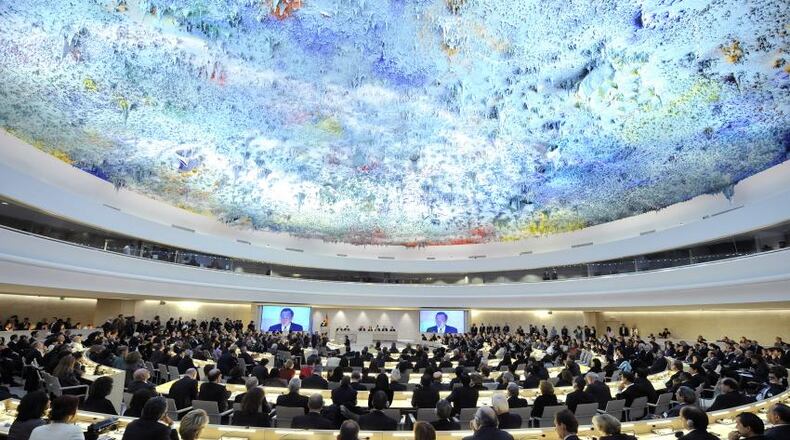The planning committee consists of folks from the Northwest Dayton Partnership, the University of Dayton Human Rights Center, the Clergy Community Coalition, Black Lives Matter Dayton, the Montgomery County Jail Coalition, and the movement for Uniting Dayton for Human Rights, among others. We have chosen a set of critical issues to focus on at the event: Housing, education and youth engagement, healthcare, policing and incarceration, and food security. The event is open to the public and will hold space for an open mic of personal testimonies and structure dedicated time to developing channels and formations for action, while Professor Hansford will provide insight and feedback as this community works.
Daytonians are already very aware of these areas of challenge — both by virtue of our everyday experience of living here and also as active members of this community already engaged in struggles for well-being and dignity. These areas have all been well documented in countless reports and we know that they are not natural occurrences. Food apartheid, for instance, is the result of conscious decisions made by people leading institutions and companies to divest resources and decrease access to basic human needs. In response to issues associated with chronic poverty, we have hope zones, opportunity zones, and community reinvestment areas. What we don’t need is another forum focused only on our problems. Instead, “Dayton Unites for Human Rights” will do two things to advance ongoing efforts: Bring people together from different areas to identify intersections and build collective power through engagement with an international process of learning and action for people of African descent.
This community has demonstrated that “human rights” can be a meaningful and useful framework for thinking about policymaking, movement-building, and accountability. Currently, the City is engaged in a process to make real the assertion that “housing is a human right.” A campaign is underway to adopt a resolution declaring Dayton as a “Human Rights City.” Last year, the Clergy Community Coalition brought its case against Premier Health and local government by submitting a report to the United Nations Committee on the Elimination of Racial Discrimination claiming the closure and demolition of Good Samaritan Hospital constituted a human rights violation. This momentum suggests that “human rights” is an avenue for broadening our shared idea of justice underwritten by a refusal to be limited even by domestic law in making claims and seeking reparation.
We’re not the first or only ones to lean into this curve. In 1947, W.E.B. Du Bois and the NAACP submitted a report to the United Nations about the “denial of human rights” to people of African descent in this country. In the introduction to, “An Appeal to the World,” Du Bois writes, “A discrimination practiced in the United States against her own citizens…cannot be persisted in, without infringing upon the rights of the peoples of the world.” In 1964, Malcolm X wrote in “The Ballot or The Bullet?” that, “Human rights are the rights that are recognized by all nations of this earth. And any time anyone violates your human rights, you can take them to the world court.” Even more recently, the families of Trayvon Martin, Rekia Boyd, Michael Brown, and George Floyd each brought their cases to international human rights agencies to pursue recognition and remedy.
Human rights are most effective when protected close to home and every level of government has obligations under international law to recognize and honor those rights. The upcoming community assembly will raise the expectations we have of local leaders and forge global networks of solidarity and pressure. We hope you will join us.
Joel R. Pruce is the Director of Applied Research and Learning at the University of Dayton Human Rights Center. Cheryl J. Garrett is a member of the Northwest Dayton Partnership Steering Committee - an initiative of Learn to Earn Dayton.


